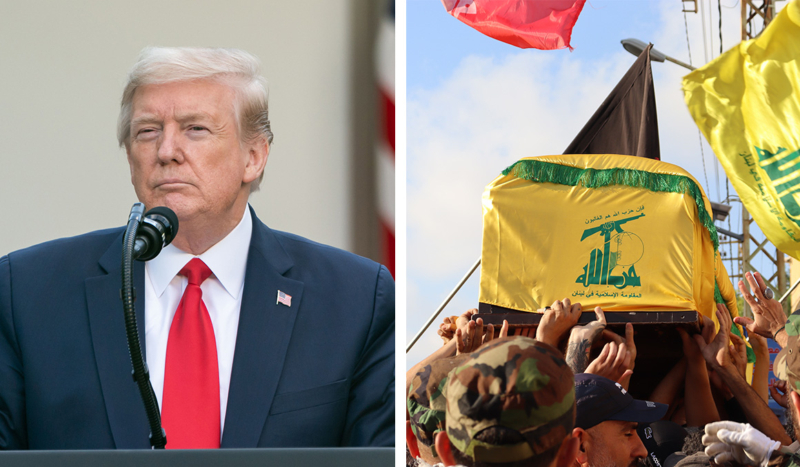
Trump White House Archived / Flickr (Left), mohammad kassir / Shutterstock.com (Right)
CV NEWS FEED // The recently announced ceasefire between Israel and Hezbollah is being widely attributed to the anticipated leadership of President-elect Donald Trump. Former NATO commander James Stavridis pointed to Trump’s upcoming presidency as a pivotal factor, according to The Hill.
“In the fight that Israel continues to have with Hezbollah … you’re seeing Hezbollah willing to go to a ceasefire,” Stavridis explained in a Dec. 1 radio interview on “The Cats Roundtable” on WABC 770 AM, The Hill reported. “I think that’s a direct result of the presence of a new Trump administration coming on.”
Stavridis emphasized the strategic implications of Hezbollah’s decision, suggesting it reflects a recalibration of the group’s priorities.
“Foreign leaders are waiting for Trump to take office before making any permanent decisions,” he observed, indicating that the potential return of a more assertive U.S. foreign policy is already reshaping calculations in the region.
According to Politico, senior U.S. officials say the agreement also isolates Hamas, undermining the group’s hope for broader regional support. Officials have expressed optimism that the Lebanon ceasefire might encourage Hamas to reconsider its approach, potentially paving the way for further peace initiatives in the region.
The U.S. and France brokered the ceasefire, which began Nov. 27, ending more than a year of conflict along the Lebanese-Israeli border. The agreement requires Hezbollah to withdraw from southern Lebanon, prohibits the rebuilding of its infrastructure, and calls for Israeli forces to return to their side of the border within 60 days. President Joe Biden described the deal as a “permanent cessation of hostilities,” while acknowledging the ceasefire does not address the broader conflict in Gaza, which continues to inflict devastating losses on civilians.
The Detroit News reported that the Middle East and North African (MENA) Chamber of Commerce in Dearborn, Michigan, home to one of the largest Arab-American populations in the U.S., also credited Trump for working behind the scenes to facilitate the agreement. The Chamber praised his efforts, noting that they had earlier appealed to him to intervene in the violence in Lebanon and Gaza. Local leaders in the region expressed cautious optimism about the agreement but emphasized that broader peace is still needed.
As CatholicVote previously reported, Michel Constantin of the Pontifical Mission recently provided a somber perspective on the humanitarian toll in Lebanon. Reporting from the Catholic Near East Welfare Association, Constantin described extensive destruction in southern Lebanon, where “25% of buildings, residential buildings, schools, churches, or mosques, have been wiped out.” He highlighted the displacement crisis, noting that “90% of the population in the south has fled,” with many finding refuge in already strained communities in Mount Lebanon and Beirut.
Displaced families often had only minutes’ warning before their homes were destroyed.
“The Israeli port parole of the Israeli army would warn the people of one quarter of one village to leave immediately,” Constantin recounted. “Sometimes he gave them only 20 minutes. After 20 minutes, they were still on the road, leaving, and they saw their houses and the whole village destroyed completely.”

